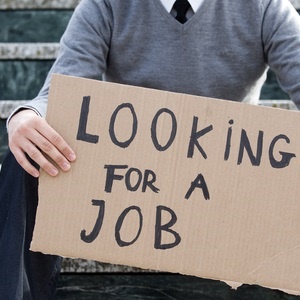
According to the World Bank, small and medium enterprises (SMEs) provide two thirds of employment in the European Union (EU) – a total of 65 million people.
They perform a critical role, especially at the lower end of the job market.
They represent 99% of the enterprises in the EU and employ an average of four staff members, including the owner/manager.
In Japan, SMEs employ 81% of the workforce and the average, per employer, is about nine staff members.
In Latin America about 80-90% of companies are micro enterprises.
Governments there have radically reduced red tape to ensure SMEs’ needs are attended to swiftly.
Among the major South American economies, only Argentina experienced a drop in the number of SMEs between 1998 and 2002.
In Brazil and Mexico these small businesses did very well.
While the Brazilian economy expanded very slowly, SMEs grew by 6.5%.
In Colombia, SMEs now account for 36% of all jobs and 63% of industrial jobs.
In the OECD countries, SMEs make up over 95% of enterprises and generate over half of private sector employment.
The governments in these developed countries seem to understand something that our government does not understand: they make it easier for small businesses to operate.
SMEs employ people, and the result is low levels of unemployment.
Members of the South African Parliament, who each earn more than R1 million per year, seem to have no idea what their decisions do to the people out there who have to suffer the consequences of their decisions.
MPs should regularly visit areas where incomes are low and conditions are tough.
If they did, they would not have voted for the National Minimum Wage (NMW), which has increased unemployment in the country as our organisation, the Langeberg Unemployed Forum, said it would.
According to the newest unemployment figures, 10.3 million people are unemployed, the highest figure since the counting began.
Do the MPs not care about the people who earn zero and whose families go to bed hungry at night?
A family of four who previously earned R2000 each could get by if they were very careful.
Now it is R3500 or nothing, because it has become illegal for small businesses, like spaza shops, to employ people for less than that amount.
With the R1 million per year the MPs are paid by taxpayers, they don’t have to worry about whether there will be food for the family every night.
They also don’t seem to have to worry about the trouble they cause for people who lose their jobs when they set a minimum wage that they suck out of their thumbs.
Maybe when they do harm by causing people to lose their jobs, they should be made to pay.
Anyone who can prove that they lost their jobs because of the NMW should be able to claim for damages from the MPs.
The amount of the claim can be deducted from the salaries of all the MPs who voted for the NMW.
The real minimum wage is zero, and they should be taught to understand that truth.
The cruellest part of the NMW is that the lowest-skilled people in the country are the first to lose their jobs or are unable to find jobs.
The opportunities for on-the-job training are lost and so are the fringe benefits that would otherwise be provided by employers.
The difference between wage rates in rural and the cities has been ignored, so the workers in the country areas will suffer the most.
That is where the most unemployment will happen. Poverty in the rural areas will increase.
We will also see skilled workers replacing unskilled workers, part-time workers replacing full-time workers, and machines replacing people.
Small businesses should play a significant role in unemployment reduction in South Africa, but they are not being allowed to.
Businesses are not the enemies of the unemployed, and should not be treated as if they are.
Small firms should be freed from red tape and costly compliance requirements to allow the people working for them to spend their time on productive work and not on dealing with regulations.
Regulations, taxes and reporting requirements should be reduced to a minimum.
A bad part of applying suffocating regulations to small firms is that the government officials who think up the regulations have no idea how small firms work.
Regulations intended for large firms with efficient administrations, too, are imposed on small firms, taking up many hours that they should have used in running their businesses.
This must change!
Xolile Mpini is a member of the Langeberg Unemployed Forum




 Publications
Publications
 Partners
Partners








